SUA ar fi amenințat Pakistanul cu izolarea dacă nu îl înlătură de la putere pe fostul premier Imran Khan din cauza politicii sale față de Ucraina, potrivit unor documente secrete pakistaneze. Departamentul de stat al SUA e negat vehement veridicitatea celor publicate.
SUA ar fi „încurajat guvernul pakistanez” să comploteze pentru a-l înlătura de la putere pe Imran Khan din cauza neutralității sale în conflictul din Ucraina.
Documentul publicat de The Intercept arată că ar fi avut loc o întâlnire între ambasadorul în SUA al Pakistanului, Majeed Khan, și 2 reprezentanți ai Departamentului de Stat, în urma căreia a fost trimisă o telegramă la Islamabad prin care se spunea că Washingtonul promite „relații mai calde” dacă Khan este îndepărtat și „izolare” .
SUA ar fi amenințat Pakistanul cu izolarea dacă nu îl înlătură pe fostul premier Imran Khan din cauza politicii sale în Ucraina.
Departamentul de Stat a etichetat deja această informație ca fiind falsă.
DEPARTAMENTUL DE STAT A SUA a încurajat guvernul pakistanez într-o întâlnire din 7 martie 2022 să-l îndepărteze pe Imran Khan din funcția de prim-ministru din cauza neutralității sale cu privire la invazia rusă a Ucrainei, potrivit unui document secret al guvernului pakistanez, obținut de The Intercept.
Întâlnirea dintre ambasadorul pakistanez în Statele Unite și doi oficiali ai Departamentului de Stat a făcut obiectul unui control intens, al controverselor și al speculațiilor în Pakistan în ultimul an și jumătate, în timp ce susținătorii lui Khan și oponenții săi militari și civili s-au bătut pentru putere. Lupta politică a escaladat pe 5 august, când Khan a fost condamnat la trei ani de închisoare pentru acuzații de corupție și luat în custodie pentru a doua oară de la înlăturarea sa. Apărătorii lui Khan resping acuzațiile ca nefondate. De asemenea, sentința îl împiedică pe Khan, cel mai popular politician din Pakistan, să participe la alegerile așteptate în Pakistan la sfârșitul acestui an.
La o lună de la întâlnirea cu oficialii americani documentată în documentul guvernului pakistanez scurs, a avut loc un vot de cenzură în Parlament, care a dus la înlăturarea lui Khan de la putere. Se crede că votul a fost organizat cu sprijinul puternicei armate a Pakistanului. De atunci, Khan și susținătorii săi au fost angajați într-o luptă cu armata și aliații săi civili, despre care Khan susține că i-au proiectat înlăturarea de la putere la cererea SUA.
Ce cuprinde textul ”telegramei secrete”
Textul telegramei pakistaneze, produs în urma întâlnirii de către ambasador și transmis Pakistanului, nu a fost publicat anterior. Telegrama, cunoscută în interior ca „cifr”, dezvăluie manevrele pe care Departamentul de Stat le-a desfășurat în acțiunea sa împotriva lui Khan, promițând relații mai calde dacă Khan ar fi fost îndepărtat și izolare dacă nu ar fi fost îndepărtat.
Documentul, etichetat „ Strict Secret”, include o relatare a întâlnirii dintre oficialii Departamentului de Stat, inclusiv secretarul de stat adjunct al Biroului pentru afaceri din Asia de Sud și Centrală, Donald Lu, și Asad Majeed Khan, care la acea vreme era ambasadorul Pakistanului la NE.
Documentul a fost furnizat The Intercept de o sursă anonimă din armata pakistaneză care a spus că nu au nicio legătură cu Imran Khan sau cu partidul lui Khan. Intercept publică corpul telegramei mai jos, corectând greșelile minore din text, deoarece astfel de detalii pot fi folosite pentru a marca documente și pentru a urmări difuzarea acestora.
I had a luncheon meeting today with Assistant Secretary of State for South and Central Asia, Donald Lu. He was accompanied by Deputy Assistant Secretary of State Les Viguerie. DCM, DA and Counsellor Qasim joined me.
At the outset, Don referred to Pakistan’s position on the Ukraine crisis and said that “people here and in Europe are quite concerned about why Pakistan is taking such an aggressively neutral position (on Ukraine), if such a position is even possible. It does not seem such a neutral stand to us.” He shared that in his discussions with the NSC, “it seems quite clear that this is the Prime Minister’s policy.” He continued that he was of the view that this was “tied to the current political dramas in Islamabad that he (Prime Minister) needs and is trying to show a public face.” I replied that this was not a correct reading of the situation as Pakistan’s position on Ukraine was a result of intense interagency consultations. Pakistan had never resorted to conducting diplomacy in public sphere. The Prime Minister’s remarks during a political rally were in reaction to the public letter by European Ambassadors in Islamabad which was against diplomatic etiquette and protocol. Any political leader, whether in Pakistan or the U.S., would be constrained to give a public reply in such a situation.
I asked Don if the reason for a strong U.S. reaction was Pakistan’s abstention in the voting in the UNGA. He categorically replied in the negative and said that it was due to the Prime Minister’s visit to Moscow. He said that “I think if the no-confidence vote against the Prime Minister succeeds, all will be forgiven in Washington because the Russia visit is being looked at as a decision by the Prime Minister. Otherwise, I think it will be tough going ahead.” He paused and then said “I cannot tell how this will be seen by Europe but I suspect their reaction will be similar.” He then said that “honestly I think isolation of the Prime Minister will become very strong from Europe and the United States.” Don further commented that it seemed that the Prime Minister’s visit to Moscow was planned during the Beijing Olympics and there was an attempt by the Prime Minister to meet Putin which was not successful and then this idea was hatched that he would go to Moscow.
I told Don that this was a completely misinformed and wrong perception. The visit to Moscow had been in the works for at least few years and was the result of a deliberative institutional process. I stressed that when the Prime Minister was flying to Moscow, Russian invasion of Ukraine had not started and there was still hope for a peaceful resolution. I also pointed out that leaders of European countries were also traveling to Moscow around the same time. Don interjected that “those visits were specifically for seeking resolution of the Ukraine standoff while the Prime Minister’s visit was for bilateral economic reasons.” I drew his attention to the fact that the Prime Minister clearly regretted the situation while being in Moscow and had hoped for diplomacy to work. The Prime Minister’s visit, I stressed, was purely in the bilateral context and should not be seen either as a condonation or endorsement of Russia’s action against Ukraine. I said that our position is dictated by our desire to keep the channels of communication with all sides open. Our subsequent statements at the UN and by our Spokesperson spelled that out clearly, while reaffirming our commitment to the principle of UN Charter, non-use or threat of use of force, sovereignty and territorial integrity of States, and pacific settlement of disputes.
I also told Don that Pakistan was worried of how the Ukraine crisis would play out in the context of Afghanistan. We had paid a very high price due to the long-term impact of this conflict. Our priority was to have peace and stability in Afghanistan, for which it was imperative to have cooperation and coordination with all major powers, including Russia. From this perspective as well, keeping the channels of communication open was essential. This factor was also dictating our position on the Ukraine crisis. On my reference to the upcoming Extended Troika meeting in Beijing, Don replied that there were still ongoing discussions in Washington on whether the U.S. should attend the Extended Troika meeting or the upcoming Antalya meeting on Afghanistan with Russian representatives in attendance, as the U.S. focus right now was to discuss only Ukraine with Russia. I replied that this was exactly what we were afraid of. We did not want the Ukraine crisis to divert focus away from Afghanistan. Don did not comment.
I told Don that just like him, I would also convey our perspective in a forthright manner. I said that over the past one year, we had been consistently sensing reluctance on the part of the U.S. leadership to engage with our leadership. This reluctance had created a perception in Pakistan that we were being ignored and even taken for granted. There was also a feeling that while the U.S. expected Pakistan’s support on all issues that were important to the U.S., it did not reciprocate and we do not see much U.S. support on issues of concern for Pakistan, particularly on Kashmir. I said that it was extremely important to have functioning channels of communication at the highest level to remove such perception. I also said that we were surprised that if our position on the Ukraine crisis was so important for the U.S., why the U.S. had not engaged with us at the top leadership level prior to the Moscow visit and even when the UN was scheduled to vote. (The State Department had raised it at the DCM level.) Pakistan valued continued high-level engagement and for this reason the Foreign Minister sought to speak with Secretary Blinken to personally explain Pakistan’s position and perspective on the Ukraine crisis. The call has not materialized yet. Don replied that the thinking in Washington was that given the current political turmoil in Pakistan, this was not the right time for such engagement and it could wait till the political situation in Pakistan settled down.
I reiterated our position that countries should not be made to choose sides in a complex situation like the Ukraine crisis and stressed the need for having active bilateral communications at the political leadership level. Don replied that “you have conveyed your position clearly and I will take it back to my leadership.”
I also told Don that we had seen his defence of the Indian position on the Ukraine crisis during the recently held Senate Sub-Committee hearing on U.S.-India relations. It seemed that the U.S. was applying different criteria for India and Pakistan. Don responded that the U.S. lawmakers’ strong feelings about India’s abstentions in the UNSC and UNGA came out clearly during the hearing. I said that from the hearing, it appeared that the U.S. expected more from India than Pakistan, yet it appeared to be more concerned about Pakistan’s position. Don was evasive and responded that Washington looked at the U.S.-India relationship very much through the lens of what was happening in China. He added that while India had a close relationship with Moscow, “I think we will actually see a change in India’s policy once all Indian students are out of Ukraine.”
I expressed the hope that the issue of the Prime Minister’s visit to Russia will not impact our bilateral ties. Don replied that “I would argue that it has already created a dent in the relationship from our perspective. Let us wait for a few days to see whether the political situation changes, which would mean that we would not have a big disagreement about this issue and the dent would go away very quickly. Otherwise, we will have to confront this issue head on and decide how to manage it.”
We also discussed Afghanistan and other issues pertaining to bilateral ties. A separate communication follows on that part of our conversation.
Assessment
Don could not have conveyed such a strong demarche without the express approval of the White House, to which he referred repeatedly. Clearly, Don spoke out of turn on Pakistan’s internal political process. We need to seriously reflect on this and consider making an appropriate demarche to the U.S. Cd’ A a.i in Islamabad.

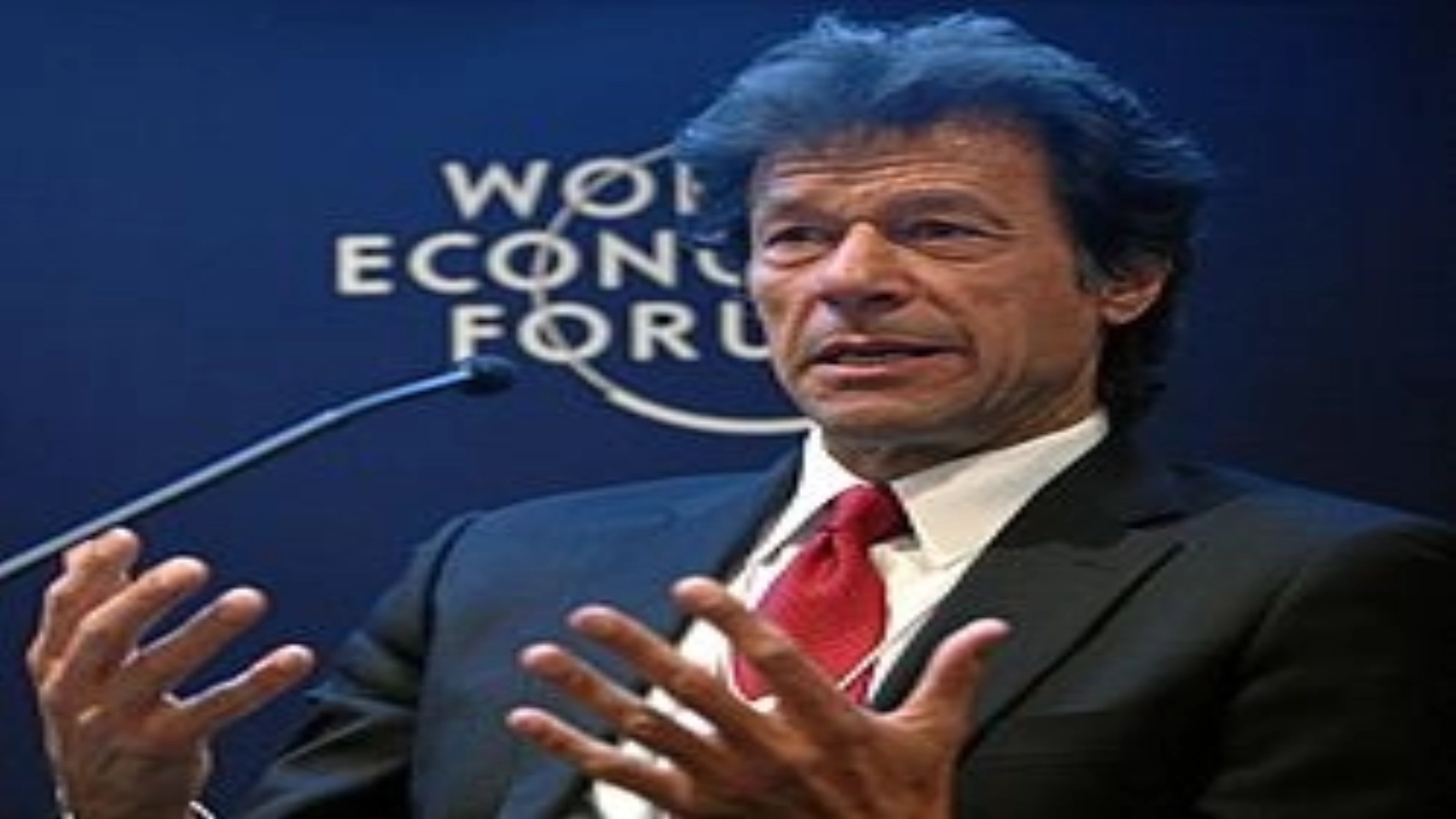






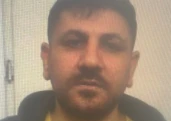
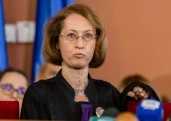





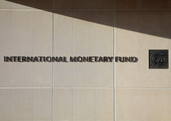
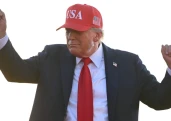















Comentează